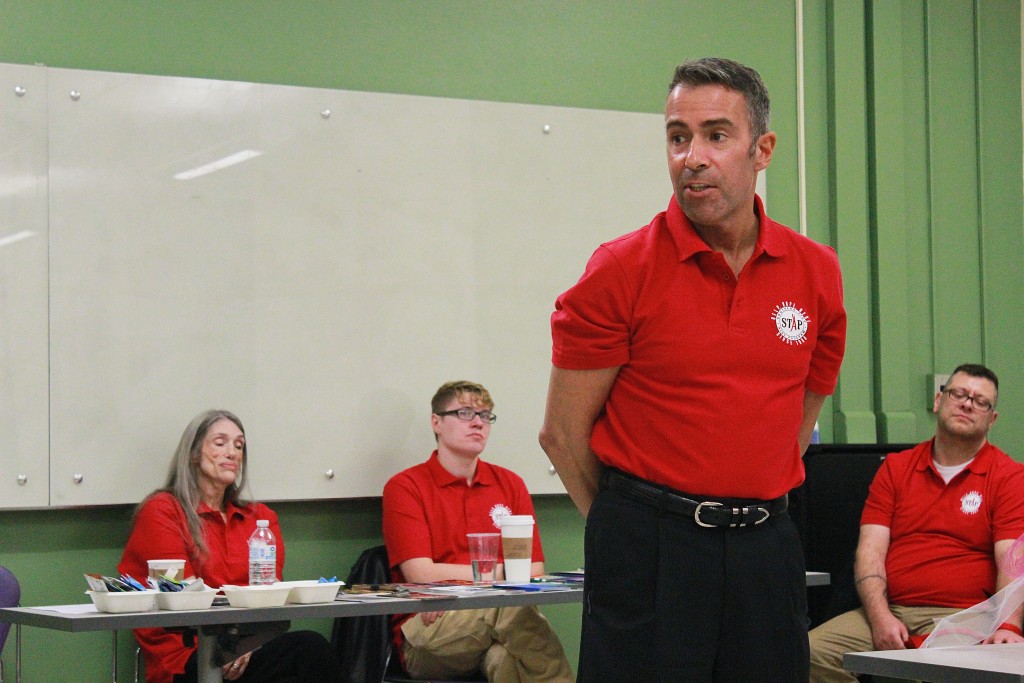
Hearing about HIV/AIDS in health class is one thing, but hearing about it from people who actually have it is a whole different learning experience. That’s why volunteers from the Southern Tier AIDS Program (STAP) came to share their stories with students with hopes they would stay safe.
On Friday evening, students attended “It Can’t Happen to Me,” an event hosted by Women Empowered Support, Protect, Educate, Advocate and Know at Binghamton University (WESPEAK BU), which featured a panel of four speakers from STAP who shared their personal experiences with the disease.
Ebony Arendt, the president of WESPEAK BU and a senior majoring in business administration, said that the panelists, who had all contracted HIV and two of which had AIDS, had expressed interest in speaking to students. She said that by having them share their own different experiences with HIV/AIDS, students would be able to understand that the disease is real and can happen to anyone.
“HIV was just something you heard about and not something people actually got,” Arendt said. “With this event, you see the people, and you see that they are real, and they’re people who shouldn’t be stigmatized.”
The event focused on teaching students that no one is immune to the disease. Becky Smith, a panelist at the event, said that when she was taking tests in 1994 for respiratory problems, her doctor said it could be a number of things, including HIV, but there was no need to worry about it because he assumed she couldn’t have contracted the disease.
“I didn’t fit the stereotype,” Smith said. “I wasn’t a gay man, and I wasn’t from Haiti. No doctor had ever asked me of any risky behavior, and what they didn’t know was that I was an IV drug user in the ’70s and ’80s. I thought I made all these changes, and I’ve been good, and now something from my past is coming back to hurt me.”
Many of the panelists also stressed the importance of getting tested. Students asked what to do if getting tested makes a person nervous, and each of the panelists said it was better to know early to maximize the possibility of staying healthy and undergoing treatment.
“In the back of my mind when I found out how the disease was transmitted, I knew I had been at risk, but I never got tested,” Smith said. “I truly believed that if I had [already] contracted the disease I would have [already] been dead.”
John Temple, the peer navigator of STAP, said having a support group is vital when fighting to stay healthy.
“From when I knew I had HIV, my life was in my own hands,” Temple said. “Since then, every decision I make is up to me, and I can’t blame anyone else for giving it to me. Honestly I’m not sad that I have HIV because I have STAP, and it has empowered me.”
Elif Gur, a senior majoring in computer science, said that the event was eye-opening for her because she had never seen HIV/AIDS from the perspective of those who have it, and that more college students should see it from this angle.
“I’m glad that I heard these experiences because I’ve never gone to one of these events and learned about the disease,” Gur said. “Now I know you can defend yourself from the disease and that people can handle it when they do get it. A lot of college students aren’t aware enough and don’t know how easily they can get the disease.”


